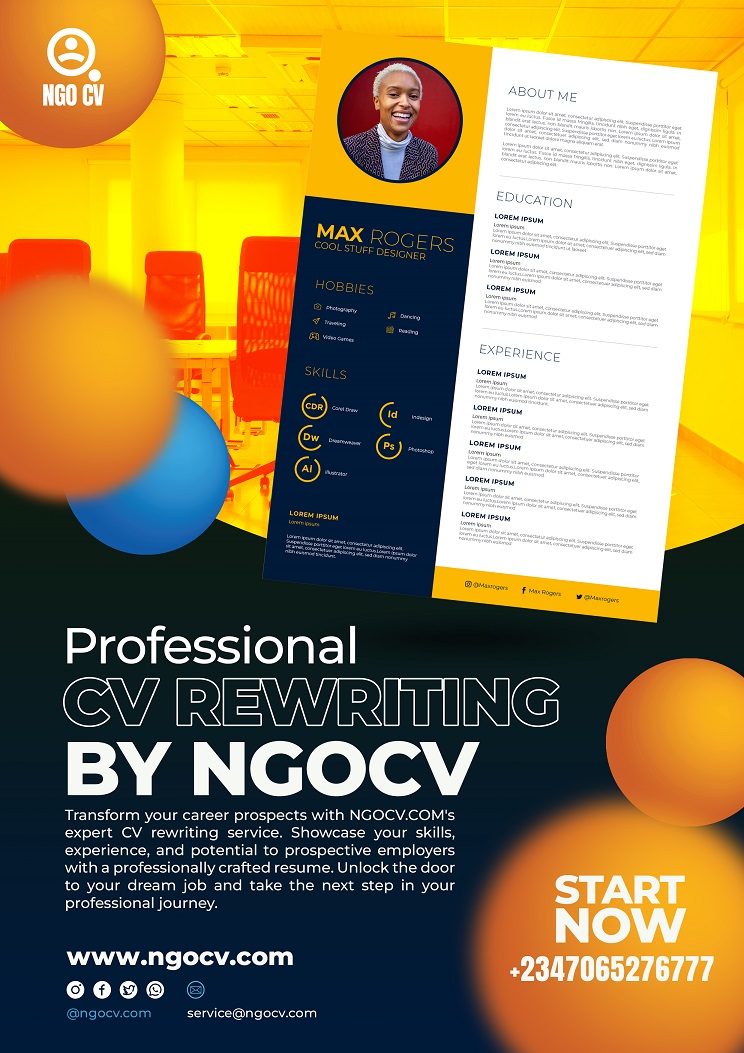Background on Save the Children
Save the Children is the leading global independent organisation for children. Save the Children believes every child deserves a future. Around the world, we work every day to give children a healthy start in life, the opportunity to learn and protection from harm. When crisis strikes, and children are most vulnerable, we are always among the first to respond and the last to leave. We ensure children’s unique needs are met and their voices are heard. We deliver lasting results for millions of children, including those hardest to reach.
We do whatever it takes for children – every day and in times of crisis – transforming their lives and the future we share.
Our vision: A world in which every child attains the right to survival, protection, development and participation.
Our mission: To inspire breakthroughs in the way the world treats children, and to achieve immediate and lasting change in their lives.
Our values: Accountability, ambition, collaboration, creativity and integrity.
We are committed to ensuring our resources are used as efficiently as possible, in order to focus them on achieving maximum impact for children.
Child Safeguarding:
Level 3: the role holder will have contact with children and/or young people either frequently (e.g. once a week or more) or intensively (e.g. four days in one month or more or overnight) because they work in country programs; or are visiting country programs; ore because they are responsible for implementing the police checking/vetting process staff.
Background information/context
Save the Children (SC) has been working in Nigeria since 2001. Today, SC is working in 20 states focusing on child survival, education and protecting children in both development and humanitarian contexts. The conflict in Northeast Nigeria has left 8.7 million people in need of humanitarian assistance (HRP 2021), in particular more than 1.7 million IDPs. Over half of the displaced persons are children (58%), half of whom are under five years of age. Borno state has been the most affected and is host to nearly 1.4 M IDPs (IOM- DTM REPORT ROUND 27 – MAY 2019). This is partly due to insecurity and the limited presence of civilian authority in the LGAs. The state is struggling to provide education, health and protection services.
Guided by Save the Children’s three breakthroughs (Survive, Learn, Be Protected), Save the Children’s Northeast Nigeria Humanitarian Response Strategy for 2020 and 2021 plans to reach 1.5 million individuals by 2021 with cross-sectoral support.
SCI aims to respond safely and effectively to emerging needs, through contingency stocks of WASH kits, learning materials, strengthening referral mechanisms, continued awareness raising, ensuring that operations continue to deliver safely through gender sensitive adaptive programming for children with strong processes and guidelines and strengthening capacity for the current humanitarian crisis in Borno state.
In order to respond to persisting information/data gaps on humanitarian needs and to inform further the 2020 SCI’s response planning, SCI will be conducting a Multi-Sector Needs Assessment (MSNA) in Borno state. The aim of the assessment is to create a clearer picture of the situation in location(s) SCI is currently implementing, to strengthen the quality of SC’s implementation and investigate the possibility of adaptive programming to ensure the appropriateness and relevance of interventions to the Covid-19 context. This assessment will cover all accessible LGAs.
Objective
The Consultant should assess, identify, and report on the following aspects:
· Literature review of pre-existing needs of population, along with available information on current context and needs of the affected population– this will identify information gaps and the necessary focus on the multi-sectoral assessment
· Primary data collection to:
Identify affected populations’ socio-economic situation, needs and capacities in our thematic areas like education, protection, FSL, WASH, Health and Nutrition.
Identify compounding gender inequality issues especially around SGBV and consequences on the lives of potential beneficiaries.
Identify strategies adopted by households in response to the current humanitarian crisis and current COVID19 pandemic.
Capture voices of children across the various locations on their needs and existing/possible interventions of SCI
· Secondary and primary data to outline existing response and plans by partners
· Produce a report identifying primary needs and challenges of the affected population as well as potential recommendations for how SC or other actors can respond. This should be done alongside SC sectoral TAs (who will provide interpretation and analysis of how best SC can respond to the needs/gaps highlighted in the assessment).
Location and official travel involved
The Supplier will work full time in the SCI Borno field office location. Regular office hours are 9:00am to 5:00pm, Monday to Sunday. Office space will be provided but the consultant is responsible for bringing his/her own IT equipment. The Supplier may be required to travel to other locations. Any required travel will need pre-approval by SCI in accordance with SCI’s Travel Policy and applicable RO/CO Expense Policy.
Services the Supplier will provide
· Secondary review and data gaps
· Methodology and tools for data collection (tailored to target participants)
· Report on activities carried out
· Inception report
· Inter-sectoral workshop to discuss findings with technical advisers and PDQ. Aim is to get their interpretation of the relevance for SC and what the recommendations should be
· Draft report
· Final report of the findings of the assessment including recommendations
Ethical Considerations
It is expected that this assessment will be:
§ Child participatory. Where appropriate and safe, children should be supported to participate in the evaluation process beyond simply being respondents. Opportunities for collaborative participation could include supporting children to collect some of the data required for the evaluation themselves, or involving children in the validation of findings. Any child participation, whether consultative, collaborative or child-led, must abide by the 9 basic requirements for meaningful and ethical child participation. Refer to the Practice Standards in Children’s Participation (International Save the Children Alliance 2005).**
§ Inclusive. Ensure that children from different ethnic, social and religious backgrounds have the chance to participate, as well as children with disabilities and children who may be excluded or discriminated against in their community.**
§ Ethical: The evaluation/research must be guided by the following ethical considerations:**
o Safeguarding – demonstrating the highest standards of behaviour towards children and adults.**
o Sensitive – to child rights, gender, inclusion and cultural contexts.**
o Openness – of information given, to the highest possible degree to all involved parties.**
o Confidentiality and data protection – measures will be put in place to protect the identity of all participants and any other information that may put them or others at risk. **
o Public access – to the results when there are not special considerations against this**
o Broad participation – the relevant parties should be involved where possible.**
o Reliability and independence – the evaluation/research should be conducted so that findings and conclusions are correct and trustworthy.**
It is expected that:
§ Data collection methods will be age and gender appropriate.
§ Assessment activities will provide a safe, creative space where children feel that their thoughts and ideas are important.
§ A risk assessment will be conducted that includes any risks related to children, young people’s, or adult’s participation.
§ A referral mechanism will be in place in case any child safeguarding, or protection issues arise.
§ Informed consent will be used where possible.
§ The consultant will not be required to obtain approval from a Human Research Ethics Committee. Save the Children will work with the relevant agency and provide assistance with this process.
Experience and skill set required
The consultant must have experience and significant knowledge of humanitarian response mechanisms, specifically regarding the Northeast humanitarian response, and have previous experience in conducting external Assessments for conflict responses. In addition, the following requirements are highly essential desirable-
· Significant experience (5-7 years) in coordination, implementation, monitoring and assessment of emergency response programs
· Relevant expertise in at least 3 relevant sectors (Food Security & Livelihoods, Education, Nutrition, WASH, GBV, Health and Protection).
· Demonstrated experience of needs assessments in humanitarian response projects is essential
· Knowledge and experience in child participatory approaches and child safeguarding
· Skills is both qualitative and quantitative research methodologies
· Fluency in English and ability to write clear and concise reports (examples of previous work will be requested)
· Understanding of humanitarian donor requirements and specific requirements for this assessment.
· Ability to manage the available time and resources and work to tight deadlines.
Desirable requirements include-
· Speaking and understanding local language
· Prior work experience in conflict affected regions
Application Requirement:
Interested parties/candidates should submit the following documents:
· Technical proposal describing how the requirements of the Terms of Reference will be met within the given timeframe.
· Budget
· CV(s) of lead evaluator/team (CVs are not very useful as each person have different information on their CV)
· 1-3 samples of relevant work
All consultant is expected to submit the expression of interest online.
Proposals will be evaluated according to the following criteria:
· How well the requirements laid out in the ToR are met
· Skills and experience of the consultant
· Share relevant reports
· Cost effectiveness
*Technical Competencies:
Evaluation criteria
Only consultants that score ALL Yes under the essential criteria evaluation will progress to the capability evaluation stage.
The pass mark for the capability criteria is 75 points out of 100 points.
Experience and skill set required
Individual consultants who respond to the tender must meet the following criteria:
Essential Criteria
Yes/No
Agrees to comply with Save the Children standard policies and procedures as stated in the RFQ or Invitation to Tender (ITT) document
A ‘no’ in either of these boxes will result in immediate disqualification.
Successfully completed a bachelor’s degree in a relevant area, such as social sciences, development studies, or in specific technical areas such as education, public health, nutrition, food security, etc.
Provides a CV and cover letter, explaining relevant experience and relevant reports of previous work
Provides brief description and evidence (attached copies) of up to 4 relevant services provided to other actors (either INGOs, International Organisations or donors), including the year of service and an official email address to contact as a reference
Capability Criteria (technical)
Max. 100
Evidence of minimum of three years’ experience designing and carrying out high-quality assessments, baseline, mid-terms and endline studies, and mid-term and final evaluations, for one or more of the following thematic areas:
· Child protection,
· Education,
· Health and Nutrition,
15 points
Evidence of experience working in development and/or humanitarian settings
5 points
Evidence shows strong training and experience in quantitative and qualitative data collection methods and analysis
10 points
Evidence of knowledge and experience with a range of statistical and qualitative data managing software and approaches (such as SPSS, EPI Info, Stata, NVivo, Atlasti, KOBO Toolbox, ODK or other similar software)
10 points
Evidence proves strong command of the English language, both written and verbal with strong report writing and documentation skills
10 points
Evidence of working experience in Nigeria or similar contexts
5 points
Provided brief description (200 words or less) of steps the consultant will take to ensure the quality of the services you would provide is of consistently high standards
[10 marks for providing a highly satisfactory response, 5 marks for a satisfactory response, and zero marks for not providing one or providing an unsatisfactory response]
10 points
Provided brief description (200 words or less) on experience in inclusive and ethical child participatory methods of data collection
[10 marks for providing a highly satisfactory response, 5 marks for a satisfactory response, and zero marks for not providing one or providing an unsatisfactory response]
10 points
During the interview, the consultant demonstrates in-depth knowledge of assessments, studies and evaluations, in terms of their design and implementation, which will be assessed and scored by a panel of experts
15 points
Expected Deliverables
SCI expects the following deliverables to be provided;
1 – Inception report
The report is to define the project’s exact work plan and scope for the rest of the duration. The report should be supported by quantitative/qualitative evidence from internal and external analysis
Presentation/Report delivered to Project Board
2 – Draft business case
Comprehensive draft business case for recommended operating model
Completed SCI business case template
3 – Final survey Methodology (agreed following consultant selection).
Detailed methodology document describing selection criteria, sampling, data collection, data analysis and report writing.
Presentation/Report delivered to Project Board
4 – Power point presentation of preliminary findings.
Comprehensive report Communicating findings of the survey.
Presentation/Report delivered to Project Board
5 – A preliminary and final survey report.
Comprehensive report Communicating findings of the survey. The report should also include recommendations based on findings from the report.
Report delivered to Project Board
Timeline
· The duration of the survey will be 30 days.
· Desk review: 2 days
· Submission of inception report: 3 days
· Development and deployment of data collection tools – Household surveys questionnaires, FGD and KII guide.: 3 days
· Training of enumerators (this includes 3 days for training of field enumerators and pretesting of tools): 4 days
· Data collection: 10 days
· Data analysis and submission of first draft report.: 5 days
· Presentation and submission of the final report: 3 days
· Total: 30 days Maximum
Estimated Commencement Date: 1st June, 2021
Estimated End Date: 30th June, 2021.
1 – Desk review
SCI MEAL Manager/ Project lead
1st – 2nd June, 2021
2 – Submission of inception report
SCI MEAL Manager/ Project lead
3rd – 5th June, 2021
3 – Development and deployment of data collection tools – Household surveys questionnaires, FGD and KII guide**
SCI MEAL Manager/ Project lead
6th – 8th June, 2021
4 – Training of enumerators (this includes 3 days for training of field enumerators and pretesting of tools)**
SCI MEAL Manager/ Project lead**
9th – 12th June, 2021**
5 – Data collection
SCI MEAL Manager/ Project lead
13th – 22nd June, 2021
6 – Data analysis and submission of first draft report
SCI MEAL Manager/ Project lead
23rd – 27th June, 2021
7 – Presentation and submission of the final report
SCI MEAL Manager/ Project lead
28th – 30th June, 2021
Scope of work
The Local Government areas to be assessed include – All accessible LGAs.
Target participants to be included in assessment
§ Internally displaced population (IDPs)**
§ Host community**
§ Returnees**
§ Boys, girls aged 6-18 (children and adolescent in and out of school children)**
§ Women and Men**
§ Other groups identified by sector (e.g. pregnant lactation women, out-of-school children)
Acceptance
Detail how success/satisfactory completion of the deliverables will be measured/verified. Make sure this does not contradict any terms in your contract/FWA
e.g.
· Deliverable 1 – to be accepted by Project Board within 15 days of delivery date
· Deliverable 2 – to be accepted by Project Board within 15 days of delivery date
General assumptions and dependencies
Include assumptions around SCI roles during the project, SCI resource availability and project management responsibilities. Detail any dependencies that exist.
e.g.
SCI will identify the key stakeholders to be engaged as part of the project
Payment information
Costs Related to The Assignment
All costs related to the analysis which are to be covered by SCI would be detailed in the contract, which will be signed by the consultant and the designated person from SCI Nigeria Humanitarian Response Program.
The primary point of contact within the Humanitarian response will be the MEAL Team. However, the consultant will be operating independently, field movements will always be in coordination with SCI Borno safety and security team for access to implementation areas in scheduling of KII and FGDs with the community. SCI will make additional staff available to support the assessment where required.
*Budget***
Consultant should be able to take into account of their budget: all human resources costs and transportation. Interested applicants must bid competitively for the work and include a detailed budget of all costs associated with the deliverable.
SCI will provide logistical arrangement during field visits. All other costs associated with the consultancy must be included in the bid.
Consultant’s fee and proposed mode of payment
Consultant’s fees shall be paid as per the contract. The break-down of payment shall be based thus:
· 30% upon signature of contract and submission and acceptance of inception report
· 70% upon submission of final report.
·
SCI reserves the right to withhold payment if deliverables do not meet the requirements outlined in this Terms of Reference and surveys/ evaluations standards.
In addition to the fees stated above, the followings are reimbursable costs:
· Transportation Cost: Flight cost shall be paid based on submission of flight ticket/receipts. Transportation to and from airport shall be paid based on submission of invoice. Other than flight, inter-state travel to Maiduguri shall be based on SCI mileage.
· Enumerator Fee: The fee for the enumerator shall be paid based on the number of days they are engaged- N4,500 per day to survey supervisor and N4,500 per day to enumerator. A transportation allowance and refreshment shall be provided to the enumerators only for the day(s) of training. The enumerator shall be paid directly into the enumerators’ bank account (or as specified by the SCI Finance team).
· Accommodation: This shall be provided to the Lead Consultant and co-consultant or re-imbursement will be made to the consultant for accommodation (subject to submission of hotel receipt/invoice). The reimbursement for accommodation shall be in line with SCI rate.
· Per Diem: This shall be provided as per SCI rate for the number of days the consultant spends in the field
· Car Hire: This shall be provided only for the number of days of field work
THE ORGANISATION
We employ approximately 25,000 people across the globe and work on the ground in over 100 countries to help children affected by crises, or those that need better health care, education and child protection. We also campaign and advocate at the highest levels to realize the right of children and to ensure their voices are heard.
We are working towards three breakthroughs in how the world treats children by 2030:
- No child dies from preventable causes before their 5th birthday
- All children learn from a quality basic education and that,
- Violence against children is no longer tolerated
We know that great people make a great organization and that our employees play a crucial role in helping us achieve our ambitions for children. We value our people and offer a meaningful and rewarding career, along with a collaborative and inclusive workplace where ambition, creativity, and integrity are highly valued.
Save the Children is committed to ensuring that all our personnel and programmes are absolutely safe for children.
We undertake rigorous procedures to ensure that only people suitable to work with children are allowed to join our organization and all candidates will, therefore, be subject to this scrutiny.
We need to keep children safe so our selection process reflects our commitment to the protection of children from abuse.
Applicants are advised that Save the Children International does not require any payment or expense during the entire recruitment process. Any request in this direction should be immediately reported as it is contrary to the values and practices of our organization.
Due to the volume of applications received, Save the Children may not provide feedback to all applicants. Only shortlisted candidates will be contacted.
Qualified candidates are encouraged to apply as soon as possible, as applications will be reviewed as received. Save the Children reserves the right to change the closing date, if considered necessary.
How to apply
Interested candidate(s) should submit an expression of interest (technical proposal describing how the requirements of the Terms of Reference will be met within the given timeframe, budget, CV(s) of lead evaluator/team, 1-3 samples of relevant work) to [email protected]




